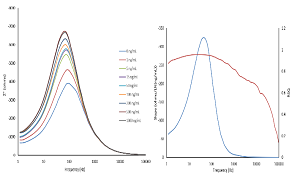
Mackenzie Honikel
Arizona State University, USA
Title: Electrochemical breast cancer screening technology facilitating earlier clinical diagnosis
Biography
Biography: Mackenzie Honikel
Abstract
Statement of the Problem: Breast cancer remains the second leading cause of cancer related death among women and accounts for nearly one in three cancer diagnoses. Advances in mammography have helped improve the early detection rate; however, noninvasive imaging modalities are unable to accurately identify the molecular subtype of the disease, therefore delaying treatment until further validation. In addition, technological advancements have increased annual screening costs, segregating lower income populations from proper preventative care. To facilitate earlier diagnosis and treatment, a point-of-care (POC) electrochemical biosensor is currently being pursued to provide immediate, sensitive and specific diagnostic information.
Methodology & Theoretical Orientation: Using electrochemical impedance spectroscopy (EIS) and a novel imaginary impedance algorithm a panel of biomarkers can be detected, simultaneously. Through the identification of a biomarker’s respective optimal binding frequency rapid signal acquisition is achievable, permitting signal deconvolution and robust characteristics.
Findings: Currently we have validated detection of a previously FDA approved biomarker on a benchtop electrode platform revealing low limits of quantification. Upon the characterization of other breast cancer indicative biomarkers, a multiplexed POC sensor will be developed and validated in complex media and clinical samples. Additionally, a screen-printed electrode platform and novel immobilization protocol will be adopted for increased feasibility in clinical use.
Conclusion & Significance: We propose that the developed technology in conjunction with electrochemical detection methodologies has profound applications in other medical conditions where a rapid diagnostic test could be useful in supplementing clinical diagnosis.

